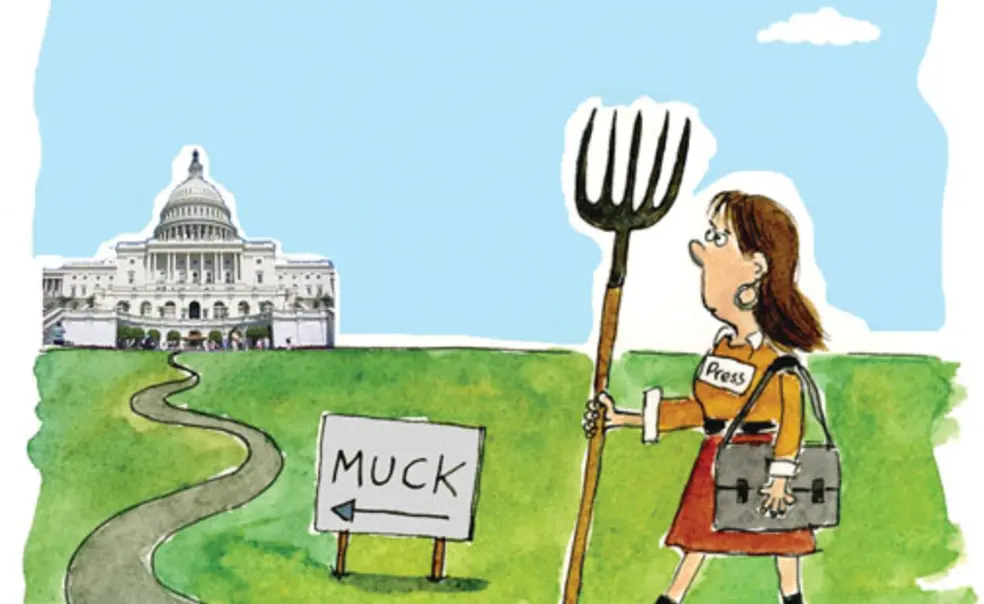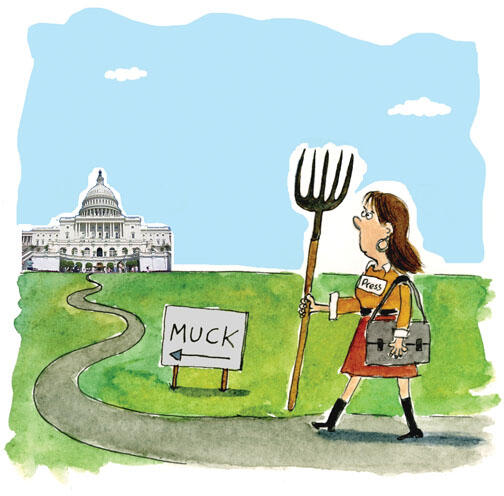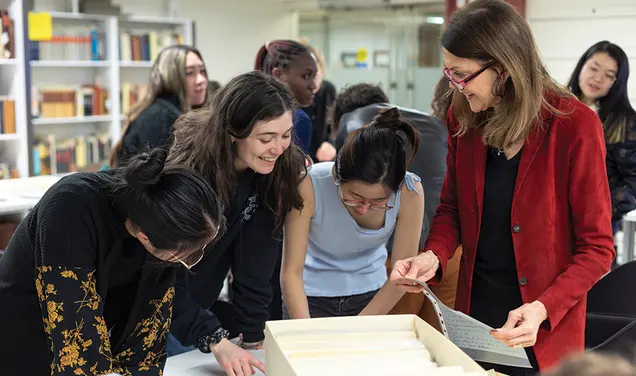Perspective
Danielle R. Ivory ’05 is a reporter and producer with the American News Project and weekly media columnist at the Center for American Progress.
About a year ago, at a conference about the future of journalism, I overheard a bigwig publisher of a reputable national newspaper say that most people don’t like reading about bad news — especially political news — because it’s boring and depressing. “If my company wants to continue making money,” he said solemnly, “then we will have to reprioritize.” According to an internal study, he explained, he would have to cut the boring and depressing parts of the paper, and include more of what the people clearly enjoyed reading most: Hollywood gossip. And it would be cheaper too, he added.
Reprioritize? When the publisher wandered from his audience to size up the cookie tray, I sidled up to him and asked, “What’s the point of having a newspaper if there isn’t any news in it?”
He chuckled and offered me a raspberry linzer torte. I guess he thought I was making a joke.
Or maybe he was stress-eating and wanted moral support. You don’t need to be a newshound to realize that the newspaper industry is rushing toward disaster and, in the last moments, scrambling to save itself. Beats and whole bureaus are getting axed left and right. City newspapers are folding. Alarmingly, when a colleague asked me the other day whether there were any newspapers in Blade Runner (aka the future), I couldn’t recall any. What does that say for the future of news?
Incidentally, by news, I mean breaking news, investigative news, muckraking news, expensive news that takes time to prepare — the kind of news that helps keep our democracy healthy. This is what is in jeopardy. In mid-January, The New York Times reported that there had been a clear decline in the number of reporters covering Washington, D.C.: “The times may be news-rich, but newspapers are cash-poor, facing their direst financial straits since the Depression. Racing to cut costs as they lose revenue, most have decided that their future lies in local news, not national or international events. That has put a bull’s-eye on expensive Washington bureaus.”
This is at a time when Washington actually needs an army of reporters, scouring the new political landscape and sticking their noses into every nook and cranny.
That’s the reason why my big nose and I currently reside in Washington.
I’m a reporter and producer with the nonprofit, donor-supported American News Project, which launched last May. News — serious muckraking above all else — is our top priority. If news reporting is going to be a part of our collective future, we can’t let it fall by the wayside until it turns into a profit-making venture. We’re going to have to focus on it, cultivate it, build an audience that doesn’t think it’s too boring or depressing. That’s something our small group is trying to do from our perch on Capitol Hill.
We think news should be free to everyone. We tell our stories in video form, usually three to six minutes each, and post them on our Web site, http://americannewsproject.com. These stories are available free of charge to anyone who wants to republish them — on a blog, on a newspaper site, or in a radio or television broadcast. With Washington bureaus getting hacked apart to cut costs, we’re trying to help fill that muckrakers’ gap.
Washington, and the complicated way in which it works, is anything but boring. Recently, I have been covering the economic crisis from Capitol Hill. Covering Congress can sometimes be a bit like covering your average small-town middle school. It’s cliquey. It’s petty. There are bullies who steal lunch money (on a much grander scale). Pretty much no one can pull off the facial hair. Sometimes people cut class or get caught having not done their homework. And it can be demoralizing.
But then again, unexpected heroes occasionally emerge. Sometimes, regardless of party politics, members buckle down to fix a problem. It’s remarkable how much change can be effected in mere moments within those marble walls. These are powerful people with great potential to do very good things. This is why my heart still flutters when I walk into a congressional hearing or stop a senator in the hallway to ask a question. These are the moments that I personally treasure — as a journalist and as a citizen. I spend a lot of time pointing out problems, but it is always with the hope and confidence that someone will indeed mend them.
When you think about it that way, bad news isn’t depressing, and it certainly isn’t boring. It’s just the first step to being inspired.











No responses yet